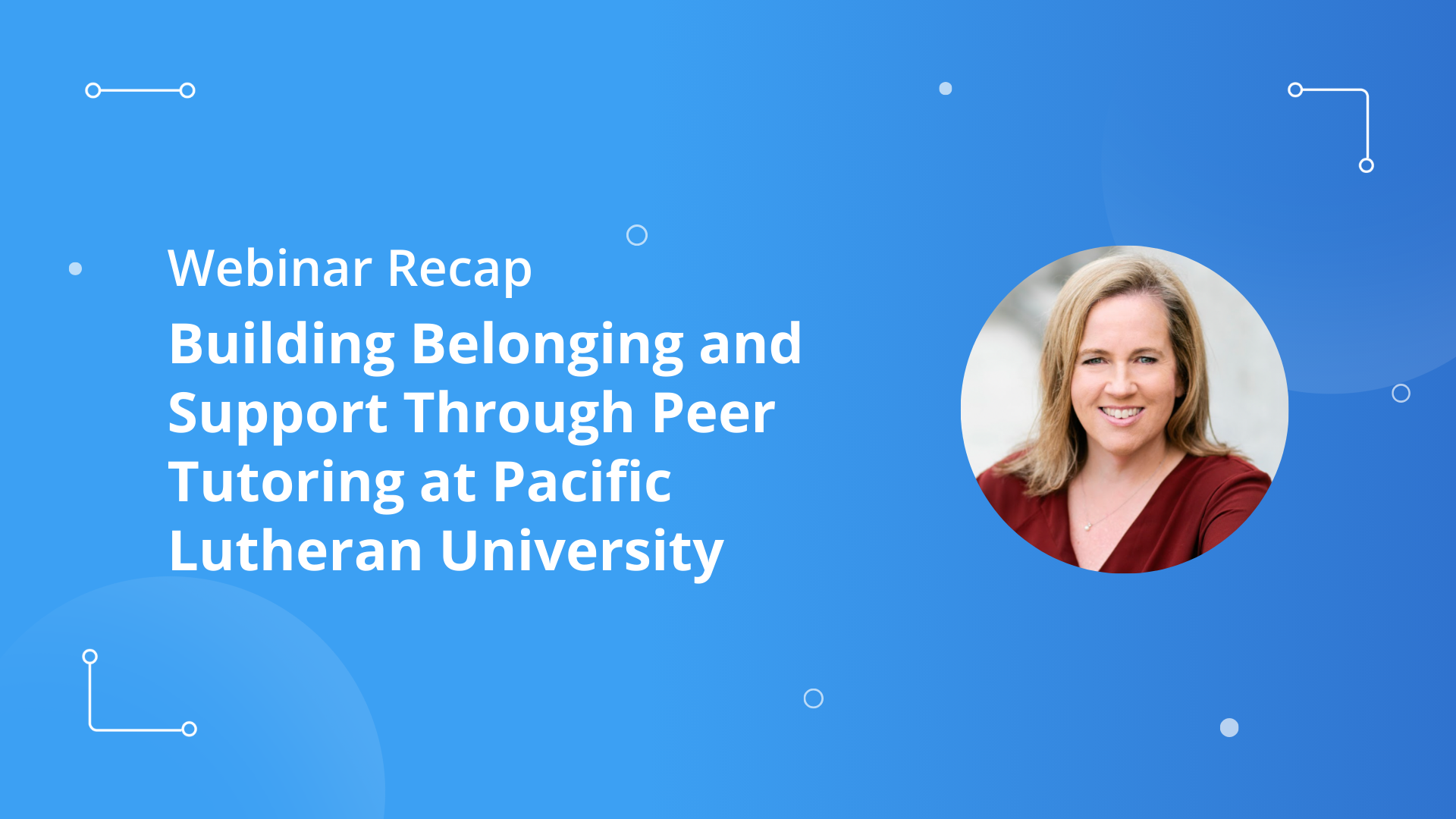During a recent conversation with Dr. Bridget Yaden from Pacific Lutheran University (PLU), the Knack team explored what it truly means to design student support that reflects the evolving needs of today’s learners. As Associate Provost for Undergraduate Education, Yaden co-leads PLU’s retention and progression task force—a group that examines how students are doing and how the university can better support their success. That work ultimately led her to Knack.
Over the course of our discussion, Yaden generously shared what it’s been like to shift from a traditional, center-based model of peer tutoring to a more decentralized, scalable, and student-centered approach with Knack. And while data points were part of the story, it was the anecdotes, reflections, and honest observations that brought her insights to life.
The Turning Point
In 2023, PLU reached a natural inflection point. After a long-serving staff member retired and a five-year review revealed declining usage and increasing costs, the university saw an opportunity to rethink its approach.
“There was a continuing decrease of service usage—even when we took out the COVID drops,” Yaden explained. “Plus, a growing overall budget concern that has plagued all of higher ed.”
At the same time, she came across Knack at a conference. The timing was right.
Five Buckets of Need
Yaden described the university’s shift to Knack through five “buckets of need,” starting with effectiveness and equity. The old model, she shared, lacked measurable outcomes and wasn’t reaching the students who needed it most. Tutor selection was largely based on faculty recommendations—a practice that, while well-intentioned, wasn’t always equitable.
“The previous way we approached peer tutoring didn’t yield measurable academic outcomes, particularly for historically underserved students,” she said. “Now, our approach prioritizes data-driven design and inclusive practices to ensure that all students benefit.”
Next came student engagement. Stigma was the top reason students avoided tutoring, followed by personal and systemic obstacles.
“Knack has helped us meet all five of those obstacles,” she noted, adding that flexibility, peer relatability, and student-led promotion—like club events and peer outreach—have made a huge difference.
The third need was meeting diverse student needs. Yaden shared that PLU is now 50% students of color overall, with 49% of first-year students identifying as first-generation.
“We talk about, rather than students being PLU ready, we are student ready,” she said. “Knack is helping us meet students where they are, because the tutors are our students.”
Scaling Up Without Scaling Staff
With Knack handling tutor hiring, training, and payroll, Yaden and her colleagues have been able to focus on broader strategy and faculty engagement. This was crucial after the university chose not to replace its retiring academic support director.
“It almost feels like we’re unlimited in what we can do,” Yaden said. “Knack covers so much of that for us.”
That scalability has allowed PLU to support a growing commuter student population (now more than 50% of all students), offer tutoring at a new campus 40 miles away, and add support in disciplines that were never covered before, like philosophy, global studies, and nursing.
One of the most powerful takeaways from the conversation was the shift in who is accessing tutoring. Usage among Black, Asian, and Latinx students has all grown significantly, according to Yaden. And then there’s the when and how of tutoring: 44% of sessions now happen outside of the standard 9-to-5 window. And despite having online options, 84% of sessions at PLU take place in person—driven by what students prefer, not by what the model requires.
Faculty Buy-In and Cultural Shift
Yaden was candid about the natural skepticism that some faculty had early on.
“There was a little bit of concern about feeling less in control of who the tutors were,” she admitted. “But faculty can still recommend students, and we’ve shown that the quality hasn’t gone down—it’s gone up.”
She emphasized that Knack’s CRLA-aligned training and the ability to share feedback and track tutor effectiveness have helped build trust.
“We’re a year in now, and I’d say it’s almost 100% positive,” she added.
Belonging Through Peer Connection
Knack’s Nate Flory, who works closely with the PLU team, offered one of the most compelling observations of the entire conversation:
“Students meet for a tutoring session, and then they start talking. Maybe they realize they’re both part of a robotics club or a student org. All of a sudden, that one session becomes a point of connection. That’s belonging.”
Yaden agreed—and closed with a reminder that it’s not just about improving grades or boosting retention (though both are happening). It’s about building a campus culture where all students feel seen, supported, and part of something bigger.
If you'd like to continue the conversation or learn more about our work with institutions like PLU, feel free to reach out. We’re always happy to connect.
